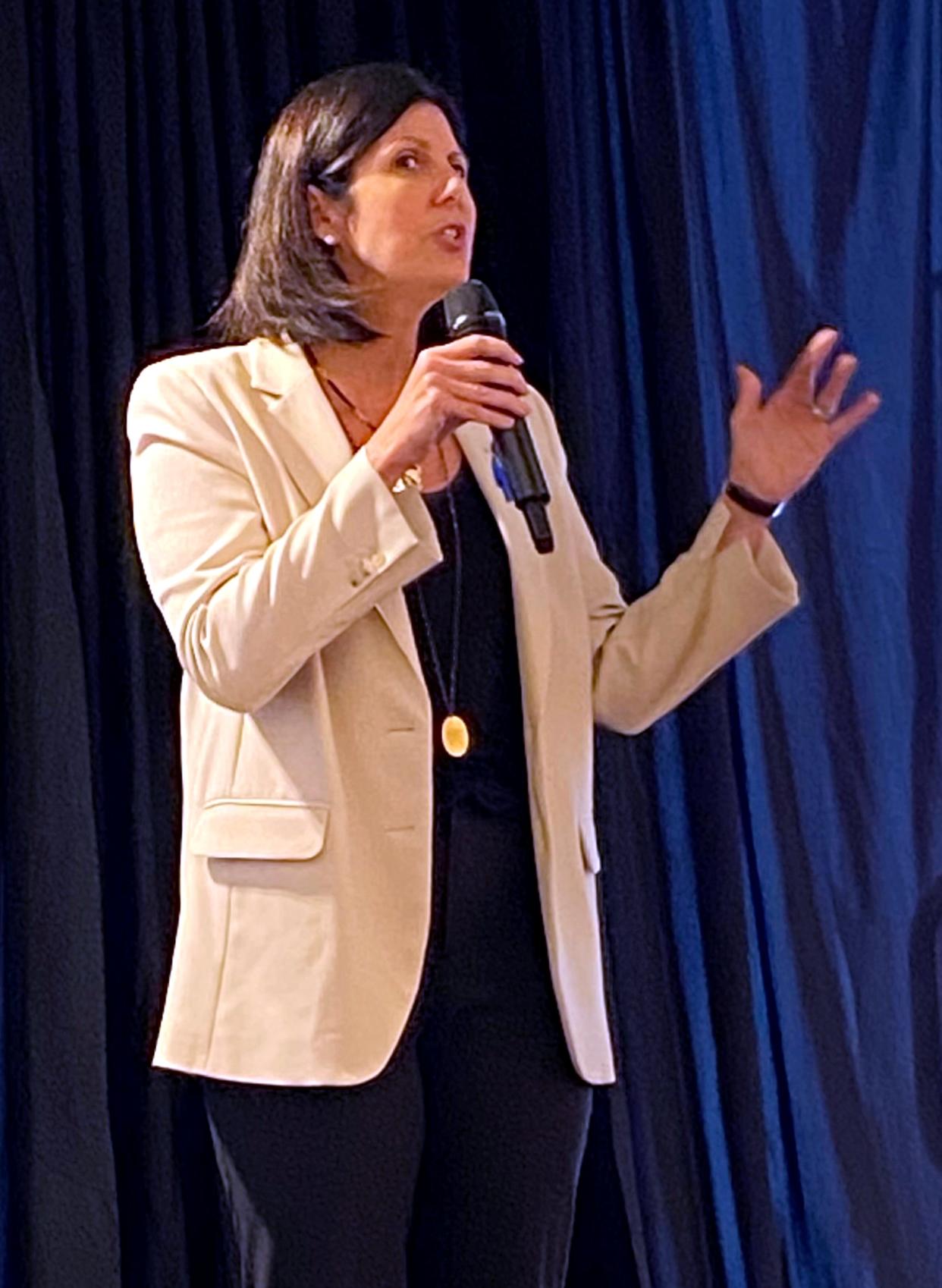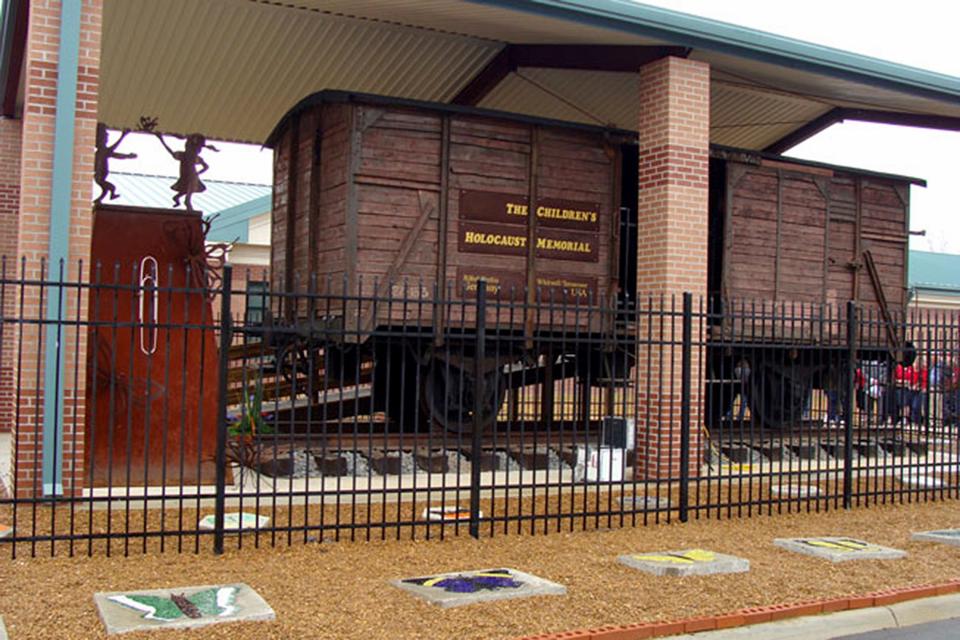Storytelling can be powerful, life-changing, TV host tells OKC audience

The girl at the counter realized that a customer mistakenly thought a pendant was shaped like an animal.
Emmy-nominated television host Alison Lebovitz said she was 12 years old and working at her family's Alabama pawn shop for the first time when a woman incorrectly identified a piece of jewelry that was shaped as the Jewish sacred symbol of chaim, which means "life" in Hebrew.
Lebovitz shared the memory at the Jewish Federation of Greater Oklahoma City's recent fall luncheon with the theme "Power of Story." Lebovitz, an author, podcaster of "Sis & Tell" and host of "The A List with Alison Lebovitz" on PBS, said she learned that day that sometimes it is better to be kind than right and beauty is in the eye of the beholder.
She said looking back as an adult, there was a third lesson: such an encounter could have been a great starting point for educating someone through conversation. Lebovitz said such dialogue is particularly important during the current climate, with an understanding that "it is only through conversation, and sometimes uncomfortable conversations, that we come to a place of understanding, that we come to a place where we recognize what we don't know, and also can embrace what we do."
Giving another example of the power of storytelling, Lebovitz talked about her work as co-founder and president of One Clip at a Time, a Chattanooga, Tennessee-based nonprofit that promotes student activism and supports learning in classrooms across North America.
The organization was inspired by the Paper Clip Project conducted by students at Whitwell Middle School in Tennessee had a hard time grasping the concept and gravity of the murders of six million Jews during the Holocaust so they began collecting six million paper clips, one for each person who died. The project went on for several years and in 2001, the school dedicated a Children’s Holocaust Memorial, made up, in part, of an authentic German railcar filled with some of the more than 30 million paper clips that were collected by students.

Lebovitz said not only do students learn through the stories told through the Paper Clip Project and One Clip at a Time's interactive service learning program, others have been inspired and educated, as well. She said one of the teachers who helped start the Paper Clip Project was inspired to get her masters degree in Holocaust education, which she currently teaches.
The tv host said leaders with the Children's Holocaust Memorial also learned that a well-known bigot could find educational lessons through the memorial. She said to the leaders' surprise, the man attended a program they hosted which featured a Holocaust survivor as guest speaker. He approached them afterward for hosting the educational event saying "Thank you. I did not know."
"If none of that had happened, it would have been okay because of that one simple interaction," Lebovitz said.
"We've maligned those who aren't surrounded by the information, the access that many of us cherish, but ignorance is, at the base, just not knowing ― and that's why information is so critical. That's why storytelling is so powerful. That's why community is so sacred."
She said people ask her where she's from and she has a ready answer.
"I like to say ... I want to be in communities where we all live and we pray and we vote in different ways, but I want to be from the same place," she said.
"I want to be from a place that appreciates dialogue, that embraces diverse thoughts and backgrounds that hold sacred truth."
Group presents award
In keeping the Jewish Federation of Greater Oklahoma City's Fall Luncheon theme, the organization presented a local newspaper journalist with the organization's Yad B'Yad Award.
"Our Yad B’Yad — Hand in Hand ― Award is bestowed to someone who has extended their hand to us. Awardees demonstrate extraordinary community service and leadership in the general community and a commitment toward building bridges between community organizations," luncheon hostess Lacie Lowry, KWTV News 9 anchor, said on behalf of the Jewish Federation.
"And it’s particularly appropriate as we are gathered to talk about the 'Power of Story' to present this award to Carla Hinton, faith editor of The Oklahoman who has told the story of the Jewish community as well as other religious communities so very well for many, many years."
Along with the award, Hinton was given a citation of recognition from the Oklahoma City mayor's office and the Jewish Federation donated funds to journalism organization in her honor.
This article originally appeared on Oklahoman: Jewish Federation of Greater Oklahoma City hosted Alison Lebovitz

